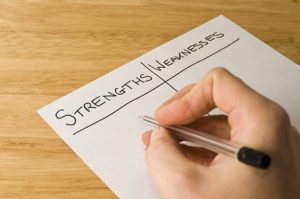In class, we learned about the first people’s principles of learning, and you might ask, what does that mean? Well, here’s a video so you can understand it better.
Now, I’m going to talk about the four principles that I think they are the most important ones (for me)
Sustainability: Helping people form the DR, making their quality of life better.
Interconectedness: When we connected with people from the DR and from New Brunswick, and when we connected with each other to share our ideas, our thoughts, and to work together.
1. Learning acquires exploration of one’s identity.
So, this one is really important to know, because you need to know what you weaknesses and strengths are, what your challenges are, what your capacities and innate abilities are, for example, before starting a project, I like to talk with the team to see what everyone’s strengths and weaknesses are, that way we can divide the work and assure it will be great. Exploration of one’s identity includes developing an understanding of one’s place in the world
2. Learning involves generational roles and responsibilities.
This one is also important, because it makes everything easier and faster while doing a work, etc. For me, everyone has a role, that way you don’t do more work than others. The responsibilities belong to everyone on the team,also, it’s your responsibility to define what you are supposed to learn from any situation. For example, in my team, before we start working, we determine what are everyone’s roles and responsibilities.

3. Learning involves patience and time.
So, learning takes a lot of patience and time, it’s really important because you need time to develop skills and important concepts, you need time to explore and examine the information. For example, during the SSEP project, we took a lot of time examining our work, our proposal. Or during our EB project, we had to wait the answer to our emails, the examine their answers and see what we could do. And the thing is that when making group decisions, we take a lot of time on voting and choosing.
4. Learning involves recognizing the consequences of one’s actions.
Each person needs to take responsibilities for their actions, and they must know that there are consequences. They can result good or bad, and that they could affect others too, and after, we need to learn from our actions, to prevent them next time. For example, when we were doing our SSEP project, any of us went to the Space Flight Camp, and the result was, we had no idea of what, or how to do our work. It affected the whole group, and we took responsibility for that, and now that we learned the lesson, when we are doing our EB project, we are trying to get more involved, we are trying to investigate, do research, contact people, for example, Liter Of Light, and the consequences are now that we are doing really well.
I think that I got involved in the EB project by asking a few of questions, interacting with Eladio, Dennis and their students Eduardo and Paul, and then by chatting via email about our ideas, etc. For the moment, what we are doing is just doing some foundraising and trying to make a new design for LED lights. We also asked Eladio if he could help us doing a video footage from the DR. I also think that it was a really good idea to learn about these principles because we can see what we can ameliorate and what we are doing wrong while working.
Links:
https://curriculum.gov.bc.ca/instructional-samples/tagged/first-peoples-principles-learning
https://www.google.ca/search?q=learning+involves+patience+and+time&client=safari&hl=en-ca&prmd=ivn&source=lnms&tbm=isch&sa=X&ved=0ahUKEwiuspumybbRAhVIrFQKHYq0AfQQ_AUIBygB&biw=320&bih=460#hl=en-ca&tbm=isch&q=first+peoples+principles+of+learning&imgrc=SYkFbCMOUuM8CM%3A
https://firstnationspedagogy.com/interconnection.html
https://cultureofyes.ca/tag/first-peoples-principles-of-learning/





This is an amazing post. You have effectively outlined the First People’s Principles of Learning while giving concrete reflections and examples on how you used them in Connections-based Learning. I love how you included the learning that took place as you connected with students from New Brunswick and the Dominican Republic. I also appreciated your honesty as you shared how not going to the SSEP Space Camp effected the outcome of your experiment for microgravity. Great work citing the outside sources you used.